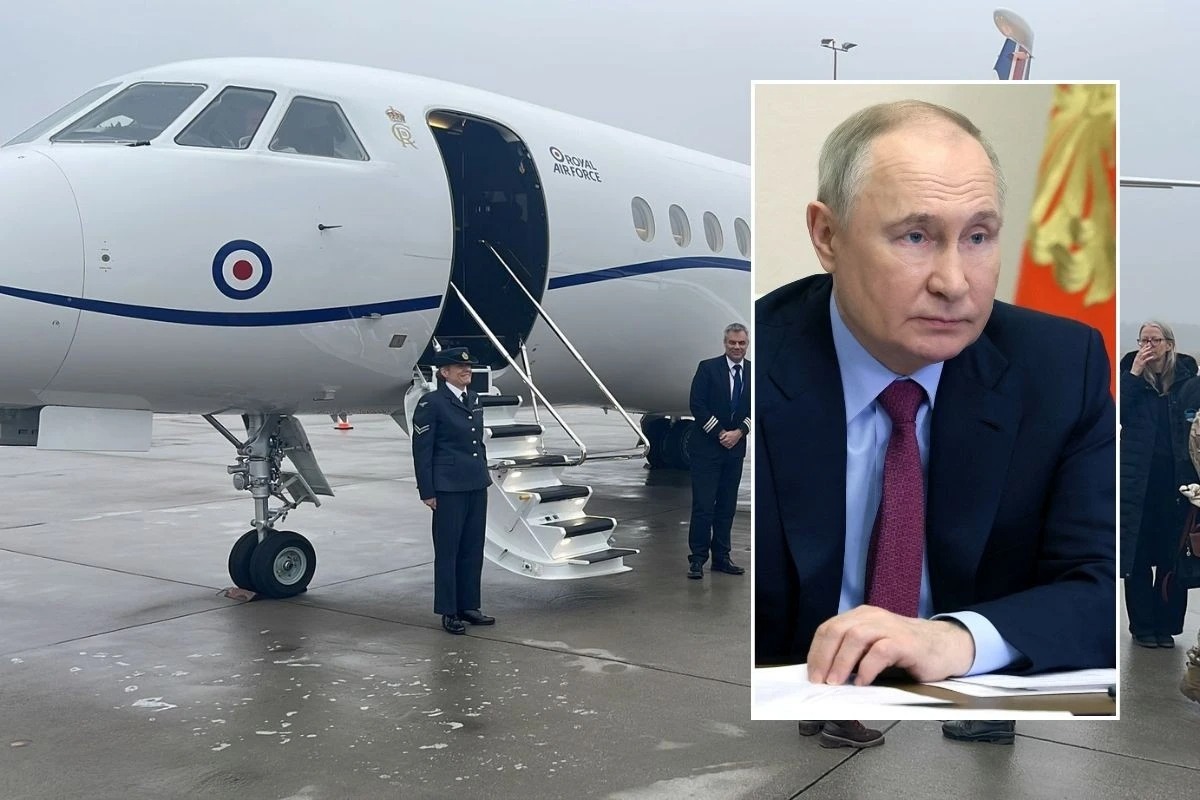In a recent development that has sparked concerns and raised eyebrows, it has been reported that the satellite signal on an aircraft used by UK Defense Minister Grant Shapps was jammed, allegedly by Russia, while traveling from Poland back to Britain.
The incident, close to Russia’s Baltic exclave of Kaliningrad, saw interference with the GPS signal for about 30 minutes, leaving mobile phones on board unable to connect to the internet. As a result, alternative methods were utilized to determine the aircraft’s location.

The Russian defense ministry has remained silent, declining to comment or offer any clarification regarding the reported GPS jamming.
However, the incident has not gone unnoticed, prompting speculation and discussions about the possible motivations behind such interference.
A spokesperson for Prime Minister Rishi Sunak confirmed the occurrence, acknowledging that while en route from Poland, the aircraft carrying Defense Secretary Shapps experienced temporary GPS jamming in the vicinity of Kaliningrad.
Despite the disruption, the spokesperson emphasized that the safety of the aircraft was not compromised and reassured that such incidents are not uncommon, particularly in areas close to Kaliningrad, which falls under Russian jurisdiction.
The incident has raised questions about the intentions and implications of GPS jamming, especially in regions with prevalent geopolitical tensions.
While the specifics of the jamming incident remain unclear, it highlights the potential risks associated with such disruptions to essential navigation systems, particularly in the context of air travel.

The incident underscores broader concerns about cybersecurity and technological vulnerabilities in an increasingly interconnected world.
As reliance on satellite-based navigation systems grows, ensuring the integrity and resilience of these systems becomes paramount to safeguarding critical infrastructure and maintaining national security.
The reported GPS jamming incident serves as a reminder of the evolving nature of modern warfare, where non-traditional tactics, such as cyber and electronic warfare, play an increasingly prominent role.
It underscores the importance of robust defense mechanisms and proactive measures to mitigate threats posed by hostile actors seeking to exploit communication and navigation systems vulnerabilities.
Moving forward, governments and international organizations must address the challenges posed by GPS jamming and similar forms of interference.
This may involve enhancing cooperation, sharing intelligence, and implementing robust cybersecurity measures to protect against potential threats and ensure the resilience of critical infrastructure.
While the reported GPS jamming incident involving Defense Minister Grant Shapps’ aircraft has raised concerns and prompted speculation, it also serves as a wake-up call regarding the evolving nature of security threats in the digital age.
By remaining vigilant and proactive, governments can better safeguard against potential disruptions and protect the integrity of essential communication and navigation systems.


